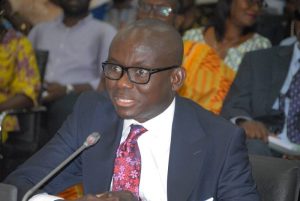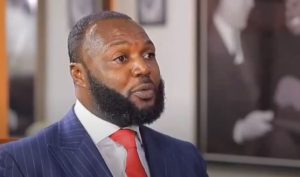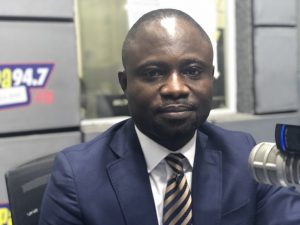A former Deputy Attorney General, Joseph Kpemka, has shot down criticisms against the Supreme Court’s unanimous decision that Deputy Speakers of Parliament can vote while presiding.
Several individuals, including former President John Dramani Mahama and his NDC party, have condemned the ruling and suggested that the judges did government’s bidding
In a tweet, the former President said the Supreme Court judgment was absurd.
“If Deputy Speakers, because they are Members of Parliament, can vote while presiding as Speaker, they could as well be able to participate in any debate on the floor over which they are presiding. This is the absurdity into which the Supreme Court ruling leads us.”
Mr. Kpemka however dismissed Mr. Mahama’s concerns, saying “he was missing the point.”
He insisted that criticisms against the judgment were neither grounded in the constitution nor in conformity with the concepts of Parliaments in other countries.
“Why is it that our democracy is fashioned around the concept in the US.? We have very similar structures. In the U.S Deputy Speakers can vote but why do we [Ghana] want to run away from that”? he asked.
The Supreme Court’s judgment backed the position of the First Deputy Speaker of Parliament, Joseph Osei Owusu, who defended his decisive vote in the approval of the 2022 budget, although he was presiding as Speaker.
The Court also struck down order 109 (3) of the Standing Orders of Parliament, describing it as unconstitutional.
On November 30, last year, Mr. Osei-Owusu, also the Bekwai MP, presided over the overturning of an earlier vote of the House rejecting the government’s 2022 Budget.
The Minority Leader, Haruna Iddrisu, called the judgment in the case a travesty of justice and a sign that the judiciary has failed the country’s parliamentary democracy.
“The judiciary of Ghana is failing parliamentary democracy in their inability to appreciate the true meaning of Article 110 of the Constitution; that Parliament shall by its standing orders regulate its own procedures.”
But the First Deputy Speaker welcomed the judgment, describing it as refreshing.
Mr. Owusu also said he will continue to interpret the constitution and the standing orders of Parliament as he understands it.
“Matters that have never arisen, are now on the fore due to the numbers we have in parliament. Anytime there is disagreement, as I have said before, I will interpret the rules and the laws as I understand it.”
The Attorney General, Godfred Dame, also said reasoning had prevailed with this judgment.
“I think the reasoning by the Supreme Court is clearly sound and is in accord with the practice in other jurisdictions around the world,” he said.
“Nowhere in the constitution has any statement been made that whenever a deputy speaker presides, he loses his right to vote,” Mr. Dame argued.







